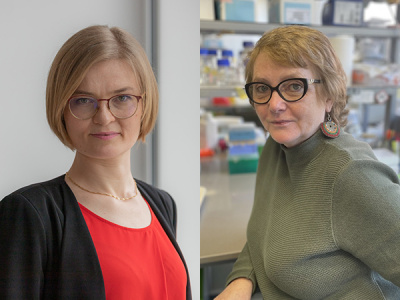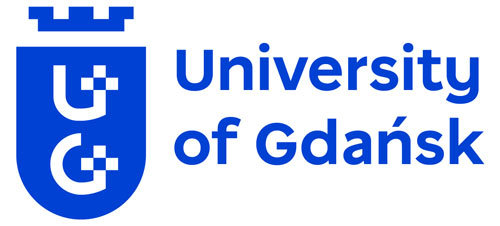
Dr Małgorzata Kurkowiak from the International Center for Cancer Vaccine Science, University of Gdańsk, received funding from the international Weave-UNISONO competition organized by the National Science Center (NCN) for the project: “Exploring new roles for ADAR1 in cancer; generation of immunopeptidome, links with p53 and the effects of cancer treatment on ADAR1 activity”.
The Weave-UNISONO competition is addressed to research teams from Austria, Czech Republic, Slovenia, Switzerland, Germany and Poland for bilateral or trilateral scientific projects. The financing amount that dr Kurkowiak received for Polish part of the project is PLN 1,588,978.00. The project will be implemented in partnership with CEITEC (the Central European Institute of Technology), Masaryk University, Brno, Czech Republic.
RNA editing by ADAR1 is one of the best studied and most widespread type of RNA modification (among the 170 types) and has been observed to increase in cancer. ADAR1 deaminates adenosines that are present in double-stranded (ds) RNA hairpins to inosines. This RNA editing mechanism plays an essential role in discrimination self and non-self RNA such as viruses; inosine in dsRNA is recognized as ‘self’ by innate immune dsRNA sensors. Thus, when cells lack ADAR1, non-edited dsRNAs present in cells are recognized as viral genetic material. This launches an innate immune response, which when chronic can kill the cell. Lack of ADAR1 can also result in an increase in the expression of endogenous retro-elements as well as changes in splicing patterns. On the other hand, when ADAR1 is highly expressed as seen in many cancers or induced by interferon (IFN), translation of transcripts with aberrantly high levels of editing could lead to re-wiring of the mutant cancer proteome as well as the production of neo-peptides expressed by the major histocompatibility complex (MHC) Class I system. These, if presented on the cell surface, can attract CD8+ T cells. Thus, either the absence of or increased expression of ADAR1 could result in novel ADAR1-dependent neoantigens which could potentially be used as biomarkers in cancer or as therapeutic vaccines.
The experiments that are planned within the project “Exploring new roles for ADAR1 in cancer; generation of immunopeptidome, links with p53 and the effects of cancer treatment on ADAR1 activity” will first of all define the global RNA editing targets that are ADAR1-dependent. In addition, the data will be used to define the immunopeptidome that is derived from RNA editing in a subset of samples. This data will be extremely informative as it is currently unknown if novel neopeptides generated due to either the excess or lack of RNA editing are presented as neoantigens. “We will determine which RNA editing events are p53-dependent since this tumor suppressor is a major sensor of altered stressed states of a cell” – says dr Kurkowiak. Furthermore, one of the main task of the project is to define ADAR dependent RNA editing changes that occur as a result of exposure to therapeutic DNA damaging treatments. “This is an important question as variability in RNA editing after DNA damaging cancer treatments or chromosomal instability due to loss of p53 during cancer evolution would in turn alter neoantigen production that could have a heterogenous effect on anti-tumor immunity” – explains dr Kurkowiak.
Dr Kurkowiak will conduct the project within the international cooperation with the group of Prof. Mary Anne O’Connell from CEITEC. Prof. O’Connell is a pioneer in studies of ADAR enzymes and a world-famous specialist in the field. “I am really excited about starting this project with our Polish collaborators. This is a new avenue of research for us and has a huge potential for future cancer research” – says prof. O’ Connell.
More information:


